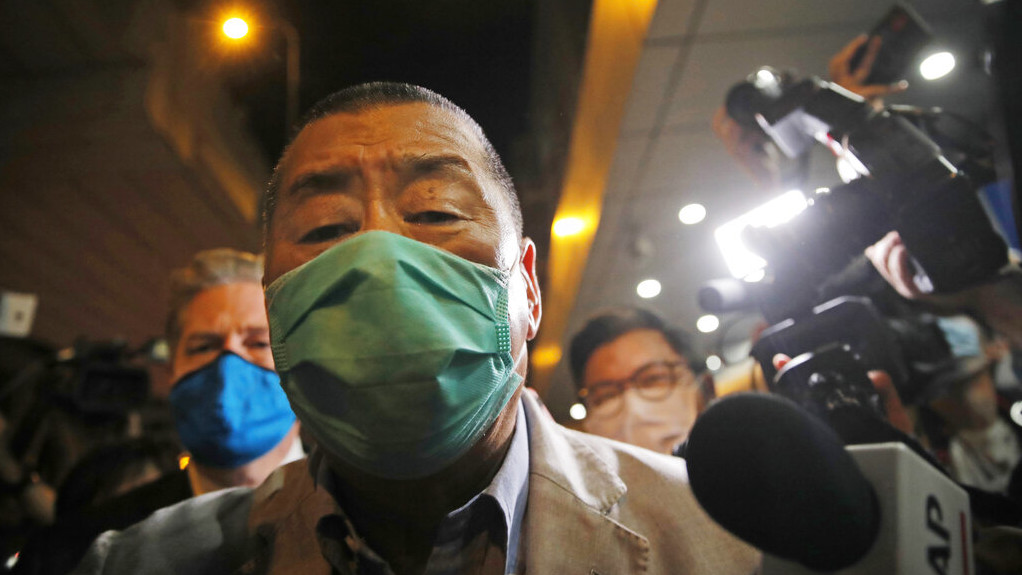Sir — The arrest of the media tycoon and founder of Apple Daily, Jimmy Lai, on charges of collusion with a foreign country — a vaguely defined crime under the new anti-sedition law adopted by Beijing — is alarming. Lai’s detention — he is a vocal critic of the Chinese Communist Party and has supported the democracy movement in Hong Kong — sends an ominous message about the future of the freedom of the press and citizens in the region. The global community must come together and ensure that the rights enjoyed by the residents of Hong Kong thus far are not completely decimated.
Raya Sinha,
Calcutta
Colossal victory
Sir — The overwhelming mandate given to the Sri Lanka Podujana Peramuna led by Mahinda Rajapaksa in the recent parliamentary elections in our neighbouring country is a reflection of the unwavering popularity of the strongman leader who recorded the highest number of individual preference votes in the electoral history of the country (“Rajapaksa to take oath today”, Aug 9). His victory, along with that of his brother, Gotabaya Rajapaksa, last year, is indicative of the rise of Sinhala-Buddhist nationalism in the island.
The SLPP’s win has led to concerns that soon Sri Lanka might descend into authoritarianism. The electorate’s assertion of a majoritarian nationalist impulse is, however, not unique to Sri Lanka. It is true of many countries, including our own, where a government with a numerical superiority in Parliament and a weak and fractious Opposition has been able to undermine democracy and create a sense of insecurity among the minorities.
With a two-thirds majority in the unicameral Parliament, the Rajapaksas can now amend the Constitution to restore presidential powers and simultaneously limit other institutions. As populist leaders, they are unlikely to face resistance if they militarize the country or crack down on dissent. Whether they will prioritize the pandemic, the revival of the economy and debt reduction remains to be seen.
The Rajapaksa brothers have a contentious history with the Tamil population in the country. The civil war between the Sinhalese majority and Tamil minority — there have been concerns of grave human rights violations perpetrated on the latter — is a dark chapter in the history of the nation. The Rajapaksas, who held key administrative posts at the height of the civil war, have been under global scrutiny for their role in handling the crisis.
It will also be interesting to see how Colombo manages its diplomatic relations with both New Delhi and Beijing who are currently at loggerheads with one another.
G. David Milton,
Maruthancode, Tamil Nadu
Sir — It seems that the authoritative and staunch nationalist leader, Mahinda Rajapaksa, is once again back as the prime minister of Sri Lanka. Although Maithripala Sirisena and Ranil Wickremesinghe earlier joined hands to oust the strongman leader from power, this uneasy alliance proved to be short-lived, paving the way for the Rajapaksa brothers to return to power. The heinous terrorist attack on Easter last year was the final nail in the coffin which convinced ordinary Sri Lankans that there is an urgent need for a strong leader at the helm. The electoral victory of Gotabaya Rajapaksa as the president of Sri Lanka in 2019 was the first step towards the Rajapaksas reclaiming power. As the elder Rajapaksa brother assumes power as the prime minister of the country with a two-thirds majority, there is no doubt that the brothers will attempt to amend the Constitution to their benefit.
Rahul Chouhan,
Ujjain
Tearful goodbye
Sir — The article by Ruchir Joshi on Mumbai bidding goodbye to the Fiat taxi made me nostalgic (“City on wheels”, Aug 11). The piece instantly reminded me of my first taxi ride in the city in the late 1980s, when I went there with my parents during summer vacation. We boarded the taxi from Victoria Terminus and embarked upon an enjoyable ride of 15 to 20 minutes to the hotel. I remember that the interior of the vehicle was clean and the driver was extremely polite. It was, thus, wonderful to be reminded of that time and of Mumbai’s iconic kaali-peeli Fiat taxi.
Sourish Misra,
Calcutta
Sir — The Fiat taxis of Mumbai have always been an integral part of the larger economy of the city, which can justly boast about being the financial capital of India. As someone from Calcutta, I am amazed by the efficiency and resourcefulness of the residents of Mumbai every time I visit the city. Mumbai also has sprawling greenery and its efficient transportation facilities hold the city together. The iconic Fiat taxi, which is an enduring symbol of Mumbai, will be sorely missed.
Anupam Roy,
Calcutta











